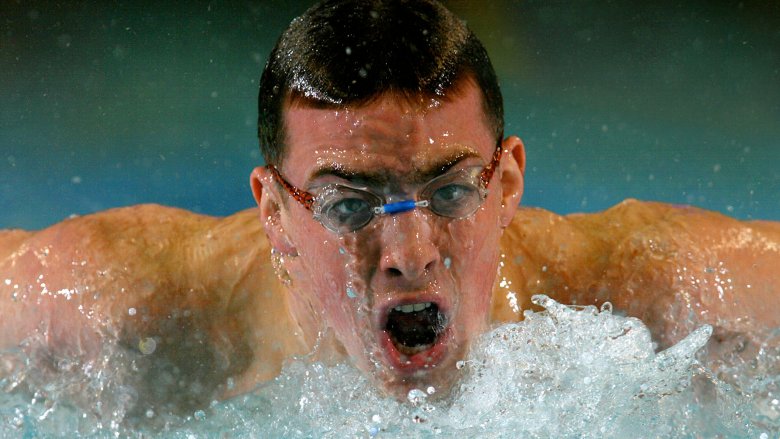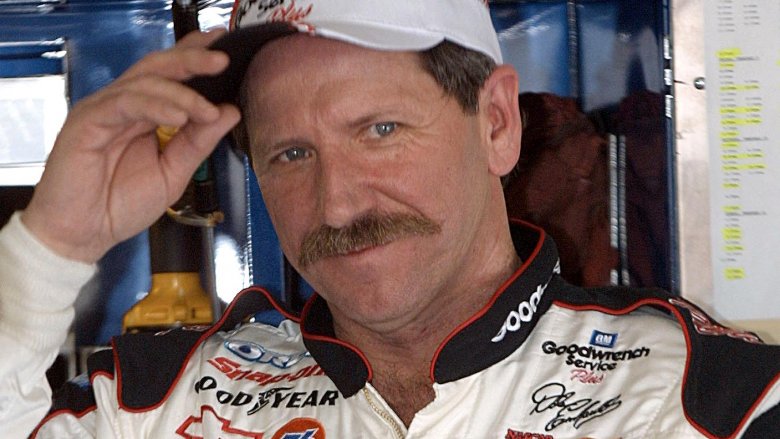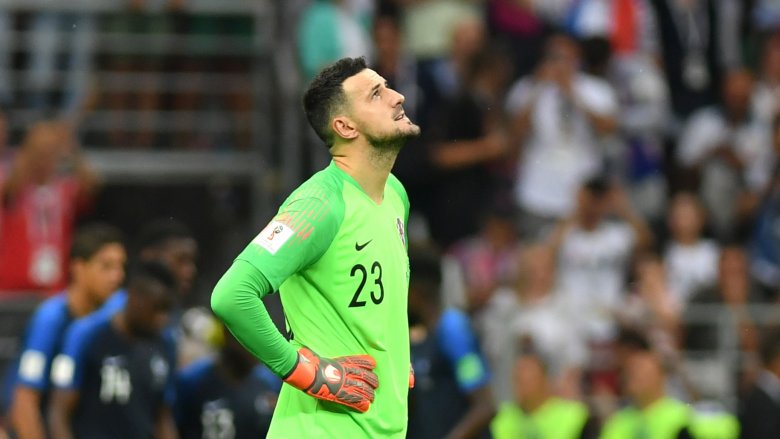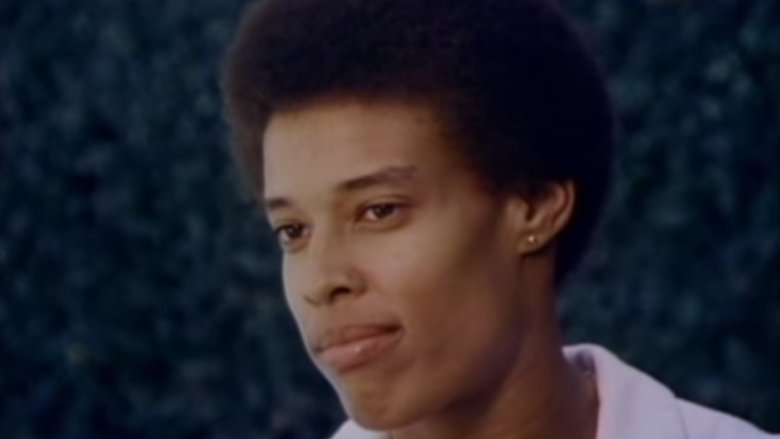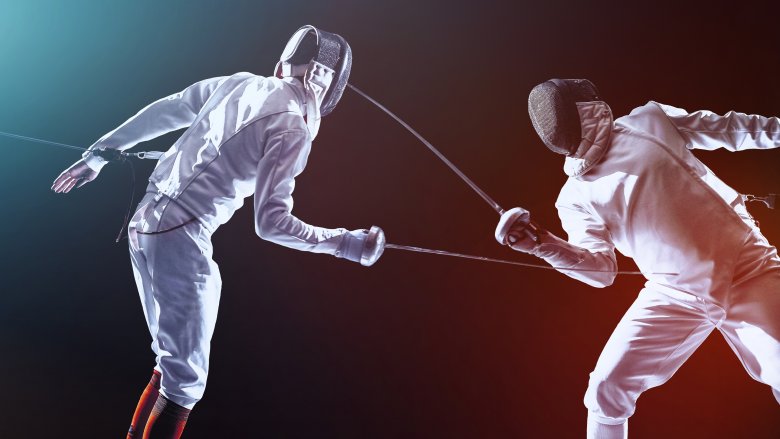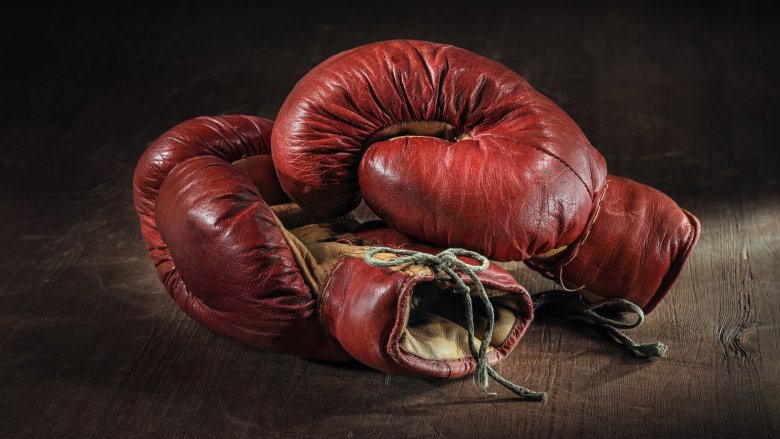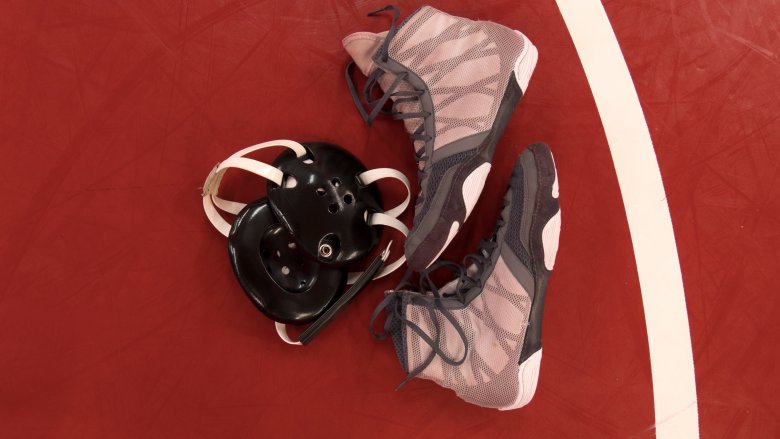Athletes Who Sadly Died During Competition
Sports are where physical excellence meets furious exertion. Determined athletes train and pain their bodies, forsaking the comforts of couch potato-ism in the pursuit of victory. They consistently push themselves past the point of exhaustion and keep going. If you've ever committed yourself to a sport, you know blood, sweat, and tears are the bare minimum. All that agony culminates in a contest against people who've made the same sacrifices and crave the same success.
Seeing that dedication play out in competition can be inspiring, a scene as powerful as the muscles that produced it. As focused athletes strive for goals that many people couldn't reach in their dreams, they seem capable of accomplishing anything. But a serious mishap or an unforeseen health problem can sneak up out of nowhere. Sadly, in humanity's most triumphant moments calamity sometimes strikes the hardest. These athletes died while playing the sports they loved.
A legend's race ends before the finish line
People say life is a marathon, not a sprint. But life isn't really a race. See, regardless of length or pace, in a race you try to cross the finish line. In life the "finish line" is death, and you run from it.
Dale Earnhardt Sr. was on the final lap of the Daytona 500 when he fatally crashed in 2001. The 49-year-old husband and father of four had won 76 races, seven racing championships, and widespread adoration. According to a NASCAR commentator, there was "No one more respected and loved by other race drivers — those in racing and fans — than Dale Earnhardt."
In his final race Earnhardt helped his son finish in second place. Per ABC, he blocked an advancing vehicle to ensure that teammates Michael Waltrip and Dale Earnhardt Jr. clinched the top two spots. But the blocked car made contact, causing Earnhardt's vehicle to veer into a wall. Then another out-of-control car careened into Earnhardt's. The renowned racer lost consciousness and never woke up, pronounced dead at the hospital. According to 60 Minutes, Dale Jr. witnessed his father's deadly accident in his rearview mirror. Moments later he crossed the finish line.
A soccer player suffers a heartbreaking head injury
When World Cup Cinderella story Croatia advanced to the quarterfinals in July 2018, goalkeeper Danijel Subasic (above) was reduced to tears. He wasn't overwhelmed by the joy of winning but by the lingering sorrow of losing his friend and former teammate Hrvoje Custic. Speaking with reporters, Subasic wore his emotions on his sleeve ... and underneath it. For years he wore a shirt with an image of Custic under his jersey.
Ten years before Subasic's touching tribute, Hrvoje Custic died pursuing a coveted title of his own. As Reuters detailed, in 2008 Custic's team Zadar had a Croatian championship match. In front of a home crowd the 24-year-old winger sped after a ball and collided with a concrete wall. Zadar went on to win the match but couldn't savor the success. Custic underwent emergency surgery but never recovered. Five days after suffering "a serious brain injury" he was declared dead. "It's awful," Zadar's team captain said at the time. "We are all crushed."
A volleyball star collapses unexpectedly
Volleyball fans worshiped Flo Hyman. A longtime teammate recalled that "People chanted her name ... in gyms all over the world," and other players had to protect her from star-struck supporters who tried to touch her.
Imposingly tall and dauntingly strong, Hyman would have thrived on any team. But her impact on American volleyball made her an icon. Before Hyman came along in 1974, the U.S. women's team was in tatters. As the LA Times described, the team tanked at the Olympics in 1964 and 1968 and didn't qualify in 1972. With Hyman's help the U.S. took fifth place in the 1978 world championships and seemed like shoo-ins for gold in the 1980 Games. America boycotted those Olympics, but Hyman led the women's team to a silver medal in 1984 despite being the oldest female player present.
In January 1986 Hyman was 31 and still going strong. Per Sports Illustrated, she joined a Japanese team in an elite league and dominated. But during a game in Tokyo she subbed out, sat down, and "slid silently to the floor." Up to that point she had looked and played well. Not a single doctor had spotted a problem throughout her career. But an autopsy revealed that Hyman had Marfan syndrome, a hard-to-diagnose illness that damages the aorta. Hyman's heart had a dime-sized defect that caused her aorta to rupture.
A swimmer's strength becomes his weakness
When asked to comment on the passing of 26-year-old Fran Crippen, Coach Bill Rose told the LA Times, "I don't know of a swimmer that is any more popular with his fellow athletes." Crippen's sister Maddy, an Olympic swimmer, said her brother was a "hero" in his family's eyes. Swimming World Magazine praised him for his perseverance, noting that when he fell short of his dream of swimming in the 2008 Olympics, he picked himself up and kept competing.
Crippen's persistence paid off countless times in his life. He was an 11-time All-American and two-time swimmer of the year in college. He was a 2009 national champion and had won gold, silver, and bronze medals in multiple swimming competitions. But in October 2010 Crippen's never-quit attitude may have killed him. At the FINA Open Water 10-kilometer World Cup in Dubai he raced in nearly 90-degree water on a 100-degree day. Multiple swimmers suffered heat exhaustion and had to be hospitalized.
Toward the final stretch of the event Crippen informed his coach he wasn't feeling well, per the Associated Press but he pushed himself to continue. He never reached the end, drowning probably due to heat exhaustion.
A famous fencer dies by the sword
Fencing requires a sharp mind. Despite all the simulated stabbing, according to Olympic fencer Sada Jacobson Bâby, the sport is supremely cerebral, primarily relying on strategy and psychology. But even the finest strategic mind couldn't have anticipated the fate of the great Vladimir Smirnov.
During the early 1980s Smirnov was arguably the best in the world. In 1980 the Soviet fencer earned gold at the Moscow Olympics by breaking a three-way tie in the men's individual foil. He also earned silver and bronze medals in team competition. The following year Smirnov pulled off an impressive comeback win at the World Fencing Championships after seeing his teammates eliminated in the preliminaries. In 1982 he sought to extend his dominance at the Rome World Championships. Instead, his reign reached a gruesome end.
As Reuters detailed, Smirnov squared off with German Matthias Behr. Both men were juggernauts, regularly described as locomotives in motion. During their fateful match, Behr's blade broke against Smirnov's chest. The blade pierced Smirnov's mask, went into his head, and punctured his brain. Though placed on life support, doctors said he had "no brain reflexes." Smirnov was 29. The horrifying incident ushered in a new era of safety precautions for fencers.
A jockey loses the lead and his life
When Jose Flores took up horse racing, he was following in his father's hoof tracks. The son of a Peruvian jockey, Flores watched races as a boy and resolved to win them as a man. According to the Pennsylvania Thoroughbred Horseman's Association, his desire to ride drove him to Panama and then America, where he lived his equestrian dream.
After settling in Pennsylvania, Flores started a stellar run, winning his first title in 1992. Over the course of his 30-plus-year career he became one of the winningest jockeys in the state's history with 4,650 victories and over $64 million in earnings. He also earned the deep admiration of other riders. The Parx Racing organization said Flores "embodied all that is good in the world of horse racing."
In March 2018, the 56-year-old Flores was closing in on win 4,651 when something went horribly awry. The Philadelphia Inquirer reported that he and his horse were leading when the steed suddenly fell. Flores slammed head-first against the ground. He left behind a wife, their 7-year-old son, and two older sons from an earlier relationship.
A hockey player's childhood dream becomes a nightmare
"It sounded like a baseball bat hitting a ball." That was how NHL player André Boudrias described moment his teammate Bill Masterton's head cracked against solid ice. As ABC detailed, it was 1968. Masterton was playing for the Minnesota North Stars. He was also living his dream. As a kid he longed to play hockey on a Canadian team, and when the NHL expanded in the late 1960s, Masterton got his shot.
It seemed like the cherry on an immaculate sundae. Masterton had married his high school sweetheart and adopted two children. He played amateur hockey and joined the U.S. team, and finally he got noticed by the Canadians. He even scored the first goal ever recorded for the North Stars. Masterton took nasty hits and experienced migraines, but he played anyway. Back then a concussion was something that gave you double-vision while you were playing, not a reason to stop playing. In fact, helmets were optional and spurned by most hockey players as a "sign of weakness."
When Masterton's skull bounced off the unforgiving ice, it was totally unprotected. An opposing player's stick had tripped him up, and a second adversary knocked him off his feet. After Masterton landed, his eyes reportedly looked gray. Rapid brain swelling prevented surgery, and nearly 30 hours after his disastrous fall, 29-year-old Masterton was pronounced dead.
A promising boxer meets his haymaker
"Big Ed" Sanders' last boxing match was just the ninth of his professional career, according to Friday Night Fighter, but the massive 24-year-old was already a lauded boxer. In 1952 he handily landed a gold medal at the Helsinki Olympics. As the Deseret News explained, Sanders was such a talented knockout artist that his final Olympic opponent, Finnish fighter Ingemar Johansson, was disqualified for running away from Sanders for the entire fight. (For context, Johansson was a future Hall-of-Famer who later defeated boxing legend Floyd Patterson to become the world heavyweight champion.)
After intimidating his way to Olympic gold, Sanders seemed destined for professional glory. In fact, his final pro bout, against Willy James, was intended as a practice round before challenging world champion Rocky Marciano. But he sustained a head injury while warming up to fight James. Undeterred, he stepped in the ring. During the 11th round James delivered a flurry of blistering blows that broke Sanders' already-weakened skull. Sanders sank to the floor as spectators booed, according to a judge. In response, Time decried boxing as "the manly art of murder."
A young quarterback's celebration ends in mourning
A straight-A high school student and star quarterback, 17-year-old Reggie Garrett possessed all the potential in the world. Friend and teammate Bryce Crew said, "He was an all-around great kid. He was perfect." Unfortunately, Garrett wasn't physically perfect. A medical examiner revealed that the teen had "an undetectable pediatric heart disease," telling the Houston Chronicle that "all his organs and muscles were in great shape. It's just that his heart muscle was not."
Garrett's heart gave out during a football game in 2010 while he was trouncing the competition. During the second quarter Garrett threw his second touchdown pass of the night. While celebrating with his team he dropped to the ground. Hundreds of people flocked to the hospital where Garrett was admitted. A hospital spokeswoman told CNN, "It was like the entire football stadium came."
When hospital visitors heard Garrett passed away, many fell to their knees sobbing. Garrett's teammate's still were still playing when received the news. After the game, instead of reveling in a lopsided win, the team came together at the 50-yard line, held each other, and wept.
A beloved wrestler grapples with an invisible illness
Charley Engelfried's principal called him a "gentle bear of a kid," per ABC. Charley was known for quick-wittedness, creativity, and kindness. Moreover, he was a good citizen and good son, someone who raised money for charity and built an outdoor kitchen for his parents. Charley also loved sports and "died doing what he loved," according to his mother.
Charley played three sports in Oregon, one of which was wrestling. In February 2011, the athlete stepped onto the mat for the last time. "He was looking forward to this match," his mother recalled. Charley pinned his opponent in the third round. After having his hand raised in victory, he shook hands with his mat adversary and the opposing coach. But as he approached his teammates, he abruptly buckled to the floor.
Charley had a hidden condition called hypertrophic cardiomyopathy. The Oregonian reported that the disorder thickens the heart, causing rhythm problems. Charley died of an enlarged heart, but he was fondly remembered for having a big one.
